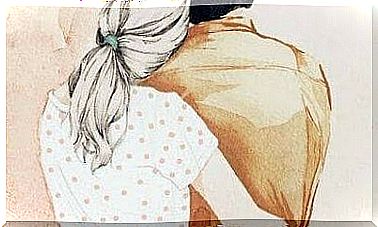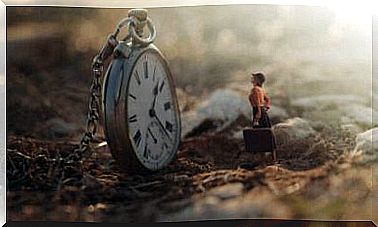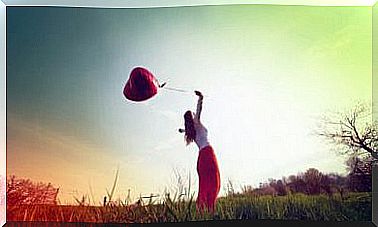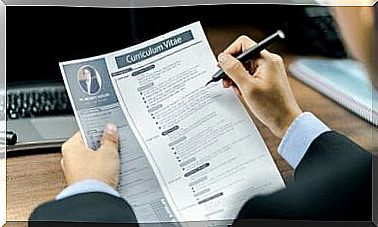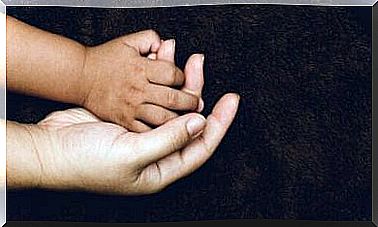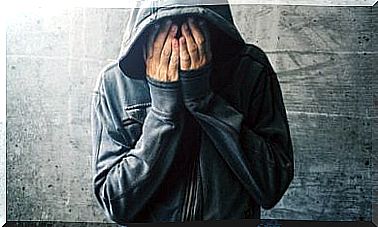The Key To The Lock Syndrome: The Overwhelming Urge To Urinate
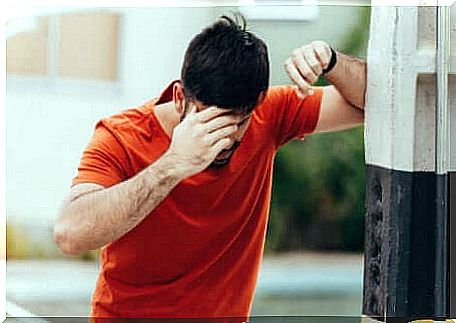
Today we are going to talk about the key to the lock syndrome, which you have undoubtedly experienced, but probably did not realize. Have you ever been in a meeting or focused on something so difficult that you did not realize you had to pee?
After the meeting, you sit in the car, preoccupied with what was discussed at the meeting. You listen to music and ruminate at the meeting until you get to your building and park. Your brain is finally back in the moment when you get out of the car and pull out the keys. It is not until that moment that you feel the urgency to urinate and that your bladder will rupture. Maybe you also suffer from the key in lock syndrome?
The 60 meters between your car and your apartment seems endless. You try to relax and go a little faster, but sometimes it does not work. You start to get desperate when you put the key in the door of the building. Of course the elevator is on the 12th floor. You have to wait a few more minutes. The thing is, when the elevator comes and you go in, the urge gets worse. You finally arrive at your apartment and turn the key in the lock to what are currently the gates of paradise.
You go straight to the toilet, and your gaze is fixed on the only thing that matters at the moment: the throne, which provides the immediate pleasure of finally emptying the poor, tortured bladder. The best part? You did not pee in your pants.
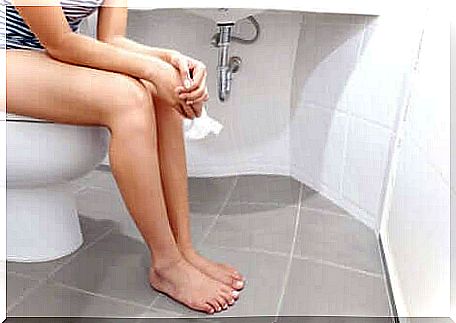
Why do you feel more cramped closer to the doen?
The same thing happens with gastrointestinal motility. Everything is fine until you suddenly realize that you need to use the toilet and that you do not have one nearby. The longer you wait, the worse the feeling of urgency.
Your anxiety and tension immediately get worse, due to the fact that all your attention is focused on the special physical need. In such situations, even those who are most concerned about keeping everything clean, who would never have used a public toilet in a million years, would like to go into any toilet, no matter how clean, dirty, disgusting or unhygienic it was.
The despair we described earlier and the example of the public toilet apply to both body functions. However, the question we want to address is why do you suddenly feel more cramped when you get close to your destination? What kind of mechanisms increase the urge to eliminate waste from the body? How are they activated? Let’s dive right into it.
Your mind and your body are not separate
There is a deep connection between physiological needs, organ function (gut and bladder), the brain, where you focus your attention, your context and the emotions (anxiety, tension and despair) that make up the situations we describe above.
We are pretty sure that if you make a list of things to do when you get home, going to the bathroom will win. This may seem obvious or silly to think about, but it has a scientific explanation. To be more specific, this phenomenon has a neurophysiological, biochemical, emotional and cognitive explanation.
It is important to remember that society in general considers the mind and body to be separate and distinct. This is because thought-body dualism, or Cartesian dualism, is an idea that refuses to die.
Neuroscience and, more specifically, psycho-neuro-endocrine immunology (PNEI) have proven that humans are made up of body and mind, and that our systems do not function separately. That is why we have a scientific explanation for something as banal as having to go to the bathroom.
An explanation for the intense need to urinate
A number of biochemical changes occur as you approach your destination. First, your body recognizes it and sends out a warning about a full bladder or bowel. The newly focused attention on that part of your body accelerates your need to walk. The more you focus on it, the more your body activates that need.
On the other hand, being close to home, the place where you feel safe and calm, also increases your need . This stressful situation, on top of the physiological mechanisms that set in due to the fear of peeing on you, activates the release of adrenaline and cortisol. It also activates an exertion and stress in the abdominal muscles and an exclusive focus on one thought: the toilet.
This urge to urinate is also called the key to the lock syndrome, as we mentioned at the beginning of this article. This name also applies to the intestine. The phenomenon is a perfect example of the connection between the bladder, the gastrointestinal system and the brain. Because while you can stay for a long time, the bladder associates urination with coming home, and it activates an emergency situation that is difficult to control.
Other explanations for the key in lock syndrome
When I think of the clinking of the keys when I try to open the door, I can not help but think of Pavlov’s bell. Conditioned reflexes are responsible for this phenomenon, just as in Pavlov’s experiment.
You are probably familiar with the Russian psychologist Ivan Pavlov, who conducted a now famous experiment with a dog. When he fed the dog, he also rang a bell. After a while, he tried to ring the bell without offering any food. He observed that the dog drooled, even when no food was present.
The same thing happens when you need to pee or have to go to the bathroom. Hector Galvan, director of the Institute of Psychology in Madrid, says that we connect the bathroom with our physiological needs, and the awareness of our physical experiences activates our consciousness, which tells us that we must use the toilet.
Environmental factors that contribute to the key in lock syndrome
Ghei and Malone-Lee identified four environmental factors that also urge urination. Getting up in the morning, a key in the lock, an open crane and cold weather. They distinguish between cravings, a feeling that you can no longer hold on, and in fact incontinence when you pee in your pants. They also say that being worried and tired can exacerbate the problem.
For example, the sound of water sounds like someone peeing in the toilet. When you hear a sound similar to how it sounds when you urinate, your brain produces an attachment and triggers an increase in the contraction of the bladder muscle (detrusor muscle).
On the other hand, three researchers from the National University of Colombia (Victor, O’Connell and Blavias) conducted a pilot study to evaluate the environmental signals that may be stimuli with conditioned reflexes under these circumstances. The results partly coincided with the Ghei and Malone studies. The first was to get up in the morning, the second (88%) was to be on the way to the bathroom, in third place with 76% was full bladder, and in fourth place (71%) was open the door to the house.
Do not think about the toilet
You begin to notice that you need to urinate when you have 150 or 200 ml of fluid in your bladder. When the bladder is full, sneezing, coughing or laughing can lead to leakage. But not everything is lost because it is possible to control the urge.
All you have to do is calm down, reduce anxiety, stop thinking about the toilet and distract yourself. All of this will help you control your bladder. That said, it is important not to resist the urge to urinate too often because it can damage your organs.
After all, everything is in your head. Your brain is the commander who models, builds and deconstructs realities. The mind, brain, emotions, cognitions and all the systems in your body participate in this incredible synergy.
